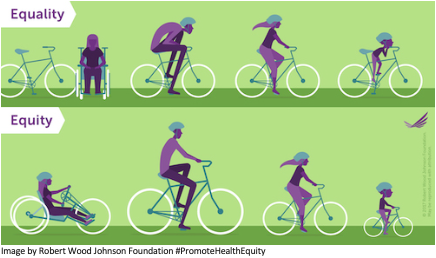Responding Post Sandy: Philanthropic Relief & Recovery
Superstorm Sandy officially came ashore in New Jersey on October 29, 2012 at 8:00 p.m. and its aftermath continues to be felt in communities throughout our state. Not 24 hours...
... for Non-Profits Rapid Response Survey : 83% cancelled programs or events and correspondingly lost revenue 77% have ...
The 2020 Census is coming and it counts — in more ways than one.
The Census isn’t just a population tally. State and local governments, businesses, nonprofits and foundations, rely on Census data to allocate funding, define where services are...
... by our Strategic Plan . Chanika Svetvilas, Manager of Programs and Learning recommends Against Technoableism by ...
... to an incredible year that offered Council members 110 programs and briefings, three signature events, the Impact ...
... to efforts banning diversity, equity, and inclusion programs, and questionable tactics to slash the federal ...
... reduce funds available for grantmaking and charitable programs. 1% Floor for Corporate Charitable Contributions ...
... with your colleagues actively and often. Beyond planned programs and affinity group meetings, CNJG members can also ...
... out our event calendar to discover even more exciting programs planned for 2026. Warmly, Theresa Jacks , President ...
... nonprofit arts organizations and those providing arts programs and services in the county to build community ... by the health crisis. Donations will support relief programs, like food pantries and other services to...
New Jersey’s philanthropic and nonprofit sectors are in the forefront of helping communities respond and recover from the worst health and economic crisis of our lifetime.
On these pages, CNJG offers resources to help our members get the...
... and harms, resulting from economic activity. Manager of Programs and Learning, Chanika Svetvilas is currently ...
... welcomed and unrestricted funds help underwrite the many programs and services that CNJG provides to our members and ...
... viruses, worms or any other computer code, files or programs designed to interrupt, destroy or limit the ...

These articles are curated from news sources, philanthropic-focused...
These articles have a philanthropic focus. We encourage grantmakers to read, share, and use strategies detailed here.
5/13/22 - ABC News:...
The Council of New Jersey Grantmakers joins the Funders’ Committee for Civic Participation’s Funders Census Initiative, the United Philanthropy Forum, and philanthropy-serving organizations around the country in asking our members to commit to...
Pages

